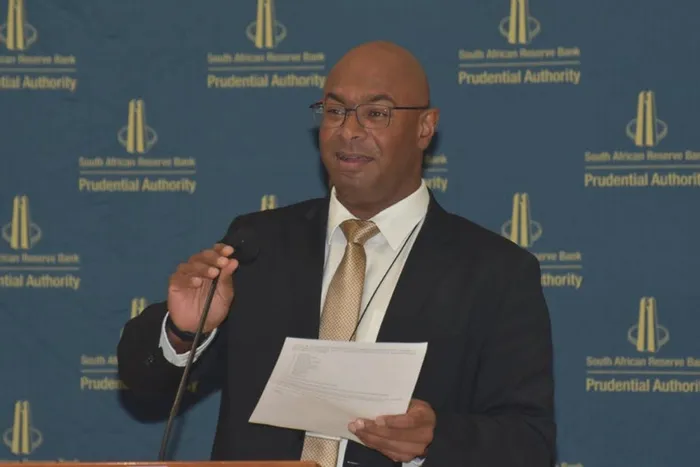Deputy governor's surprise exit shakes SA Reserve Bank ahead of crucial economic policy statement

South African Reserve Bank deputy governor, Kuben Naidoo. Picture: supplied.
In a shocking turn of events, South Africa was caught off guard today by the unexpected resignation of Kuben Naidoo, the Deputy Governor of the South African Reserve Bank (SARB), just days before the highly anticipated Medium Term Policy Statement (MTBPS) was set to be unveiled by the Minister of Finance on 1 November.
Naidoo's abrupt departure sent ripples through the nation, raising questions about the stability of the country's economic landscape.
Kuben Naidoo, a respected figure in the financial sector, had been a key player in the SARB, contributing significantly to the bank's policies and strategies.
His sudden resignation left many puzzled and concerned about the potential impact on the country's economic stability, especially at a time when the government was preparing to outline its medium-term fiscal and economic policies.
The timing of Naidoo's departure, just days before the MTBPS, added an element of uncertainty to an already delicate economic situation in South Africa.
The Minister of Finance was now faced with the challenge of addressing this unexpected vacancy while simultaneously presenting a coherent and confidence-inspiring economic policy statement.
Naidoo's resignation, though surprising, raised important questions about the internal dynamics of the SARB and the challenges faced by the institution.
Analysts and experts scrambled to understand the reasons behind his departure and how it might affect the bank's policies in the future.
Some speculated about possible differences in opinion on monetary policy or internal disagreements, while others considered personal reasons for Naidoo's decision.
The unexpected exit of a key figure like Naidoo undoubtedly cast a shadow over the SARB's stability, which, in turn, affected investor confidence.
Financial markets reacted nervously, reflecting the uncertainty and concerns about the future direction of the central bank's policies.
The rand experienced fluctuations, and stock markets displayed signs of volatility, highlighting the impact of Naidoo's resignation on the country's economic landscape.
Moreover, Naidoo's departure emphasised the importance of strong and transparent leadership within financial institutions. It underscored the need for effective communication between policymakers, regulators, and the public to maintain confidence and stability in the face of unexpected challenges.
As the nation awaited the MTBPS, all eyes were on the Minister of Finance, who now had the arduous task of not only presenting the government's economic policies but also reassuring the public and investors about the country's economic stability.
The Minister's speech took on added significance, as it was expected to address concerns arising from Naidoo's departure and provide a clear path forward for the SARB.
BUSINESS REPORT